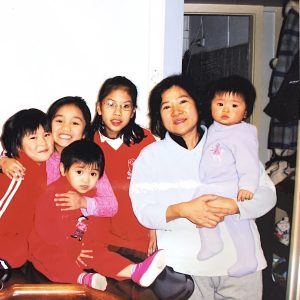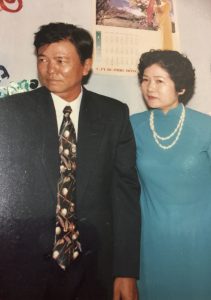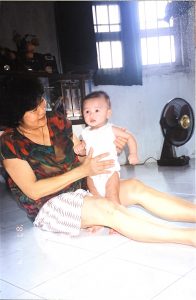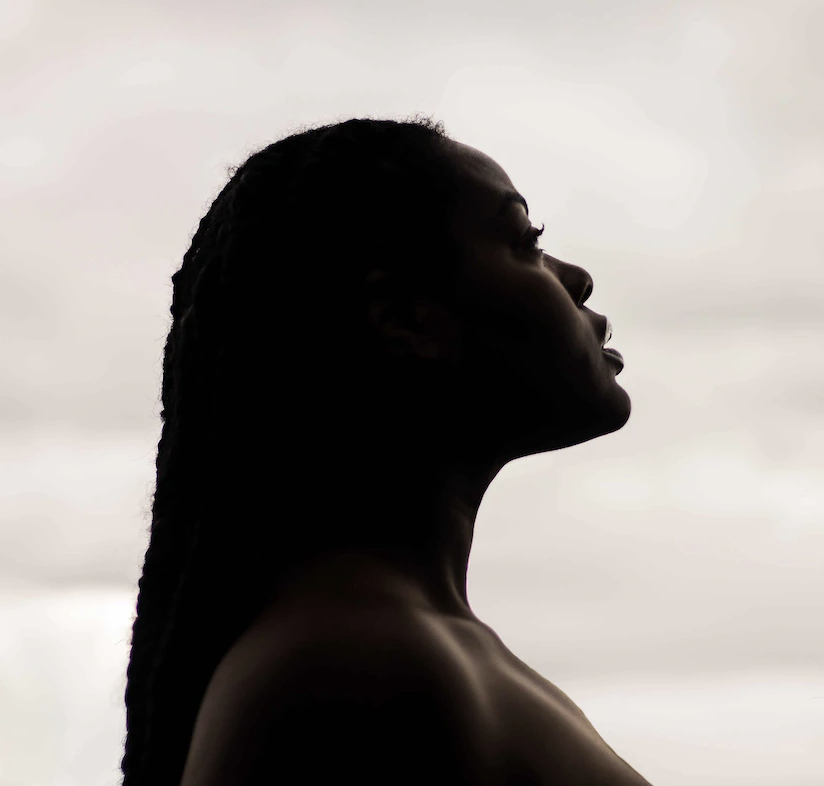
On the 10th Day of Christmas we celebrate Hope. Hope is an important value at Secret Sisterhood as we believe in a hopeful future for all women and girls around the world. Below is an inspiring, hopeful interview with Thi Tiet Nguyen – a woman who lived through the devastating Vietnam War and is now living in Australia. We hope her story of resilience, strength and kindness can encourage all of you to remain hopeful even in the darkest of times.
What is your name and when and where were you born?
My name is Thi Tiet Nguyen and I was born on the 9thof December 1947 in the city of Saigon, Vietnam.
What do you remember most from your childhood?
Well… I grew up during the war. I’m the second of nine children. We lived in my father’s two-bedroom house. He was a very talented at sewing, so I remember being surrounded by fabrics and we had an industrial sewing machine that took up a lot of space in our kitchen. It was a really small kitchen to we always put out a straw mat and ate dinner on the floor as a family.
What was it like living through the Vietnam War?
We were poor. Really, really poor. We sometimes had dinner with just soy sauce and watermelon. Other times we’d have rice with a banana. Me and my older sister had to stop going to school so that our younger siblings could go.
Did you want to go to school?
Of course. I enjoyed learning and I still like to learn, but my parents couldn’t afford to pay for all of us to go, so because me and my sister were the oldest we decided to go to work and help our parents provide for our family. We worked in the sewing factory with our dad and the shifts were from 6am to 6pm – some days I would work the other way around – it was always difficult and I’d always rush home so I could be in time for dinner.
[…]
I lost two of my siblings to illnesses when they were really young – about in their early twenties. I remember when the war was getting really bad the Viet Cong always in the streets with guns. We had to evacuate our home one time and we all walked to a shelter with food, water and blankets. When we were sleeping I could hear gun shots and I could see streaks of light going by from the bullets. It was terrifying. Other times we couldn’t evacuate and would all sleep together on the floor of the bathroom. It was a really difficult and scary time to be alive. I remember we lost a lot of our money because my father had transferred all of our gold into money and put it into a bank. But, when the Viet Cong took over they emptied the banks and we lost of our money.

How did you survive then?
We just had to. I still worked. My sister worked. My younger sister who went to school became a teacher, so she was helping provide for the family too. I got married eventually and had a son and a daughter the year the war ended in 1975. I was still working at that sewing factory and bought my own apartment with my husband. So, I taught [my daughter] how to make rice so that when I came home from work I only needed to make the side dishes and we could eat in about an hour. I always felt a little remorseful to my children though.
Why?
I felt sad that I couldn’t always give them what they needed. They rarely received new clothes and often got them from their older cousins. Whenever their books tore or fell apart, we used rice to glue them back together because we didn’t have glue. I wished I could have been there for them more. But, I had to work so we could live.
Where do you live now?
I now live in Fairfield in Sydney, Australia. I live in a house with my husband, daughter, son-in-law and my two granddaughters.
How did you come to Australia?
My daughter brought me and my husband over when she was pregnant with my second granddaughter. She got to Australia through my sister who got to Australia by boat. It was her second attempt to go by boat. The first time she went with my children but it was unsuccessful and they turned back. I was too scared I didn’t want to let them go a second time. My son is still in Vietnam today. I also have a grandson that became a monk because he didn’t want to live amongst normal society anymore. Life is really hard back home if you’re not rich. I just wish I could bring them over here to live with us.

How do you spend the most of your time nowadays?
Well, I cook a lot and I go grocery shopping. I tried to learn English at a church that my friends introduced me to before the pandemic happened and [my granddaughter] helped me a lot with my homework. I think my purpose now is to take care of [my granddaughters] – make sure that [they’re] never hungry and are always well-fed and healthy, so [they] can study and work and take care of [themselves] and one day start [their] own families. I want to take care of myself and stay healthy so that I can live long enough to see [them] get married and have children of [their] own. I hope that [they] don’t forget about me when that happens. I hope [they] remember to take care of each other and stay with each other as they grow. Family is very important.
You’ve already done an amazing job taking care of your granddaughters and I’m sure you don’t have to worry about them forgetting you.
I’m very proud of [them]. [My eldest granddaughter] is the first person in our family to go to university and she’s so smart and hard-working. [My youngest granddaughter] is so funny and very bright. I hope they can both live happy and fulfilled lives, and that they never have to experience and suffer like I did.
By: Vivien Doan Nguyen




